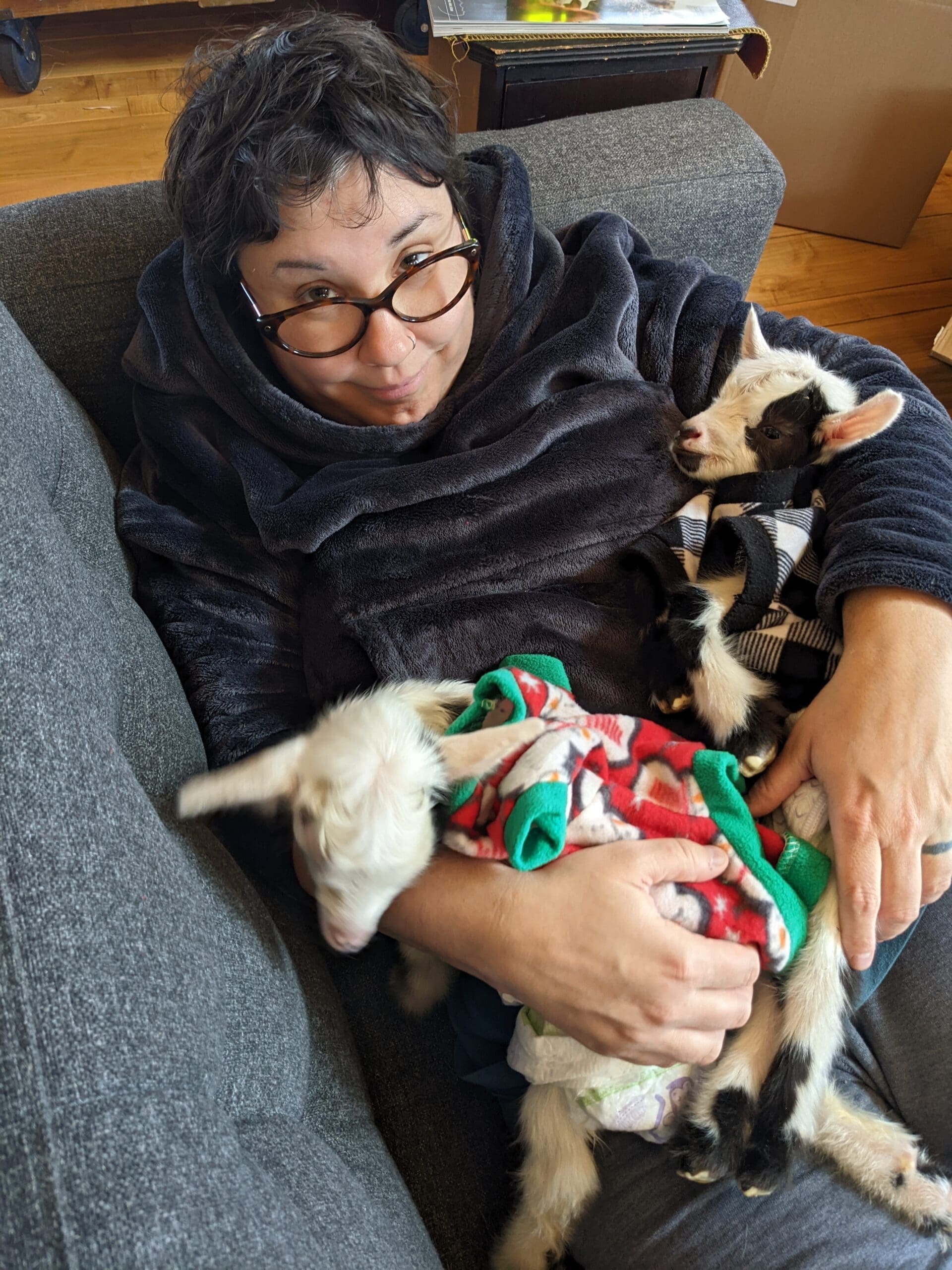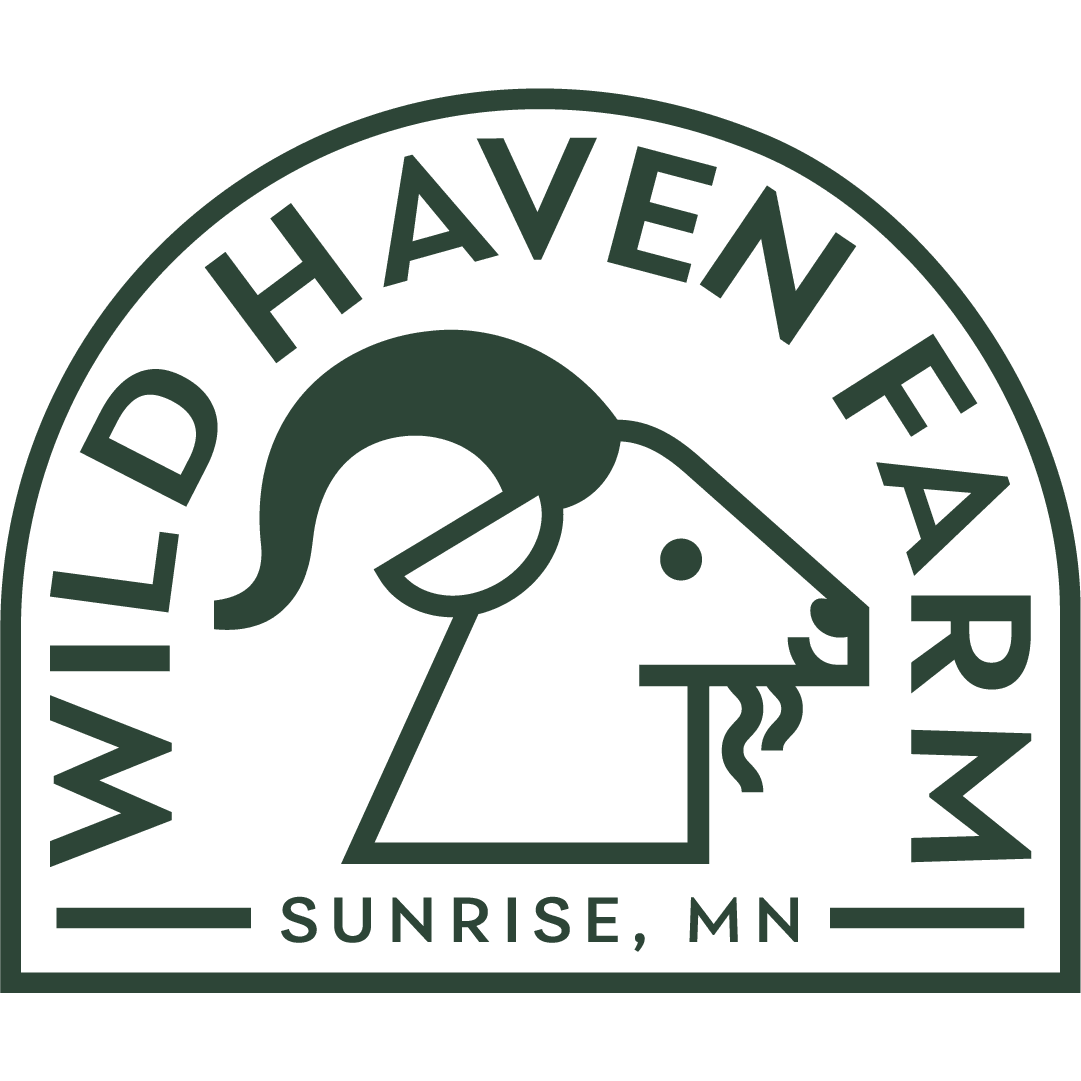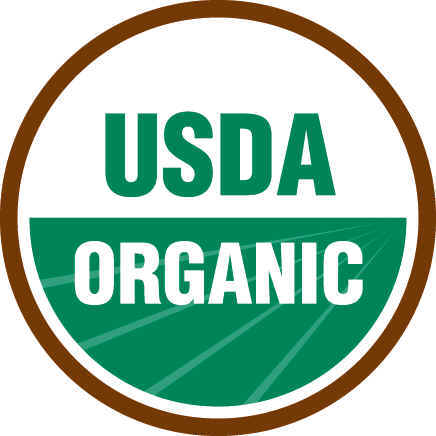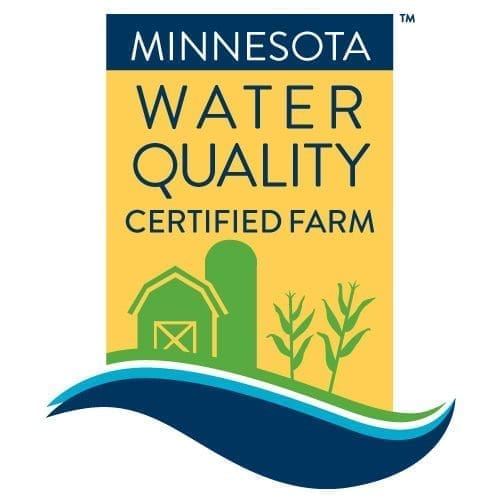Adopting a Goat


Goats from Wild Haven
- We are not a meat processor or butcher and cannot sell you any processed meats. We follow all Minnesota and USDA rules. No exceptions.
- We sell our goats only as livestock (live animals). You can use that animal in any way you wish as long as you obey all applicable laws.
- We insist that, if you wish to have the animal butchered for meat that it be done humanely. We will ask you how you intend to have the animal processed. We will not sell to anyone who is not qualified to humanely dispatch an animal or does not present us with a plan to have a qualified processor dispatch the animal.
FAQ
The following questions just scratch the surface of what you may want to know. Don’t see your question below? Just reach out. We love to talk about taking care of goats!
What is a SCRAPIES ID?
Scrapies is a serious contagious disease of sheep and goats. Fortunately, the disease is contained, somewhat like Polio in the United States. It’s there but if we take precautions, it doesn’t spread any more. Wild Haven Farm participates in a voluntary program with the USDA to track our goats. Our herds are free of Scrapies and we work hard to make sure the disease never gets a chance to spread.
All goats leaving our farm for any reason will be tagged with a Scrapies ID. Once this tag is applied, it must remain with the animal for its entire life. The tag is either an ear tag or a microchip in the tail. We usually use ear tags on our breeding goats and goats which will be sold as livestock or meat. Goats which we sell as companions (pets) will usually have a microchip. Both are official SCRAPIES IDs and uniquely identify the animal.
How much land do I need for a goat?
Goats must always be in a group of, at least, two or more. You don’t need a lot of land. An acre is enough for a couple of goats if you provide a suitable paddock with lots of activity and shelter for them. Each breed can have slightly different ideal settings. We are happy to work with you on fence design! And yes, you can use them to mow your front yard 🙂
Do check with your local ordinances. Goats are still not allowed in most places in the Twin Cities metro. We can help you research and confirm local requirements before you get too invested.
Do they have health issues like dogs?
Goats do not have the hip and eye issues over time that dogs do. However, like any animal, they need some regular attention. The two big ones are parasites and CDT.
CDT is short for Clostridium perfringens (types C and D) and tetanus. This is a vaccine given every 6-12 months (check with your vet). Most goat owners administer the shot themselves and the cost is very low. We usually show new goat owners how to give the shot when they come pick up their goat and we are always available to help with a refresher.
Goats all have worms. I know this sounds gross but you’ll never notice them. And that’s the problem. Goats need to be monitored to make sure they are able to manage the parasite load. Most goats can do this themselves most of the time. But you will need to monitor them regularly. We do this using a couple of simple techniques. One is the FAMACHA scoring which we will show you how to do when you come to get your goat. It’s easy and should be done monthly. It looks for enemia caused by an overload of the Barber Pole worm. The other tool we use if a fecal egg count (FEC) which can be done at home with a microscope or by sending samples into a lab. Your vet will advise you if a FEC is needed. Treatment for parasites is difficult since the parasites have developed almost complete resitance to medications after years of over use. We use several techniques for parasite prevention and try to keep our goats healthy so they can fight off the threat themselves. Rotational grazing, good diet, and use of a fungal product called BioWorma are some of our best defences.
Does my city allow goats?
Some municipalities have rules against keeping goats but a growing number allow them. If you are unsure about your town, please ask and we will help you find out.
What should I feed my goats?
Goats live, primarily, on either pasture or hay. If you have lots of good quality hay, your goats will be just fine.
There is a ton of stuff to know about what and how goats eat. After all, they have four stomachs! Goats are browsers and not grazers. That means that they are actually very picky eaters, contrary to the popular myth. If you watch some of the video clips of our goats in pasture they will run into a new pasture and go right for the tops of all of the tasty plants. Then they work down. In your yard, they will sample everything and will climb to get to low hanging leaves in trees.
Poisons
There are some plants that are poisonous to goats. Usually these aren’t a problem. Goats may try to sample them but as long as they have healthier choices the passing nibble shouldn’t bother them. That said, you certainly don’t want to tempt your goat with poisonous plants in or near their paddock. Be aware of what’s growning and what your goats might get into.
Pellets and Grain
Goat feed is readily available in farm stores and can be used to feed your goats if needed. However, goats need hay. Their digestive systems are designed to break down the rough forage. It actually helps keep them warm in the winter. Don’t feel that you need to feed pellets or grain to your goats. We use some grain for the does as a treat or when they are pregnant or nursing. Otherwise, just lots of hay.
Be extrememly careful about feeding your bucks grain since it can cause urinary calculi which can be deadly. As a rule, just never do it.
How much do they eat?
So how much? When we are calculating how much hay to buy each year we use the formula of 4% of the goat’s body weight per day. So a 50 lbs goat will eat 2 lbs per day. A 55 lbs square bale would last almost a month (27.5 days). You’ll need about 14 bales per goat per year. If you have a doe that is pregnant or nursing then be sure to adjust her diet as needed. Same with any goat that is underweight. Your vet will be able to help guide you on proper nutrition, especially with troubled goats.
How do I know they have enough?
Body Condition Scoring is a very valuable tool for assessing the health of your goats. It is a simple diagnostic technique to learn. Mandi and I are continually feeling the goats backs to be sure they are at a healthy weight. When you come to pick up your goat we will show you how to check your goats.
Are they OK outside in the winter?
Yes! Goats are livestock animals and have lived outside for millenia. They really need four things to be comfortable even at -30 F.
1) Shelter from the wind. A shed or unheated barn in great. We sometimes use modified IBC totes (we can show you how to make these) as a sort of dog house.
2) Bedding. They need to have insulation to lay on. We like to use the Deep Litter Method. In late fall start with a thin layer of bedding. As it gets soiled don’t remove it. Simply add another thin layer on top. This might sound gross but it actually produces a fantastic warm bed by the time the really cold temps hit. The new layer of clean litter helps absorb the urine and keep down the amonia smell. The lower layers are composting and producing heat. Your goats stay warm and in the spring you have the best fertalizer ever for your garden.
3) Hay, lots of hay. Your goats will need extra hay during the realy cold times. Their digestive systems are like furnaces and the hay is the fuel they need.
4) Warm water. A heated bucket is an absolute must. Be sure you have a spare. Buckets fail frequently. Keep the bucket out of the wind to keep the surface from freezing over. Check the water level every time you visit the goats, at least twice a day and more often in bitter temps.




